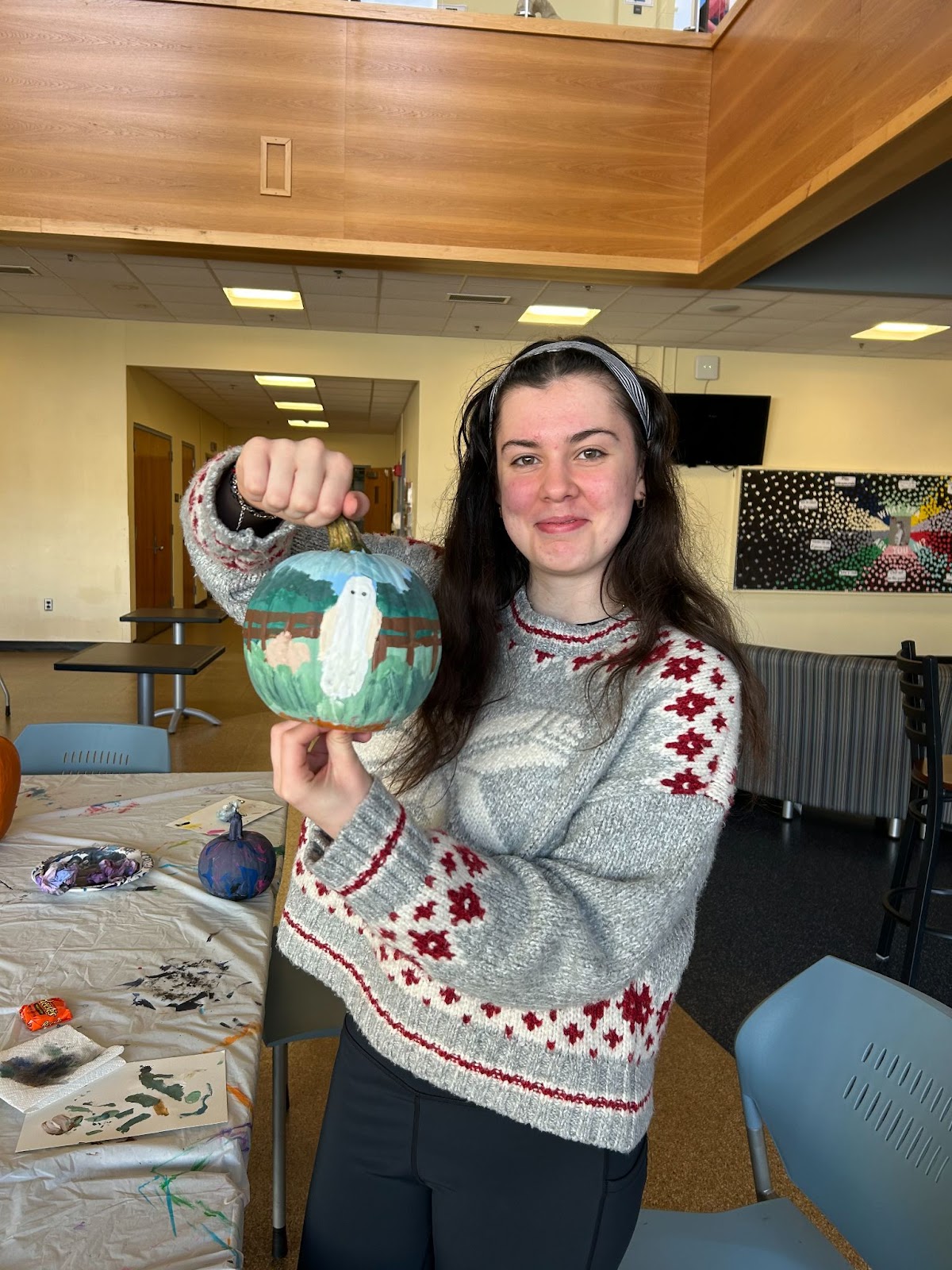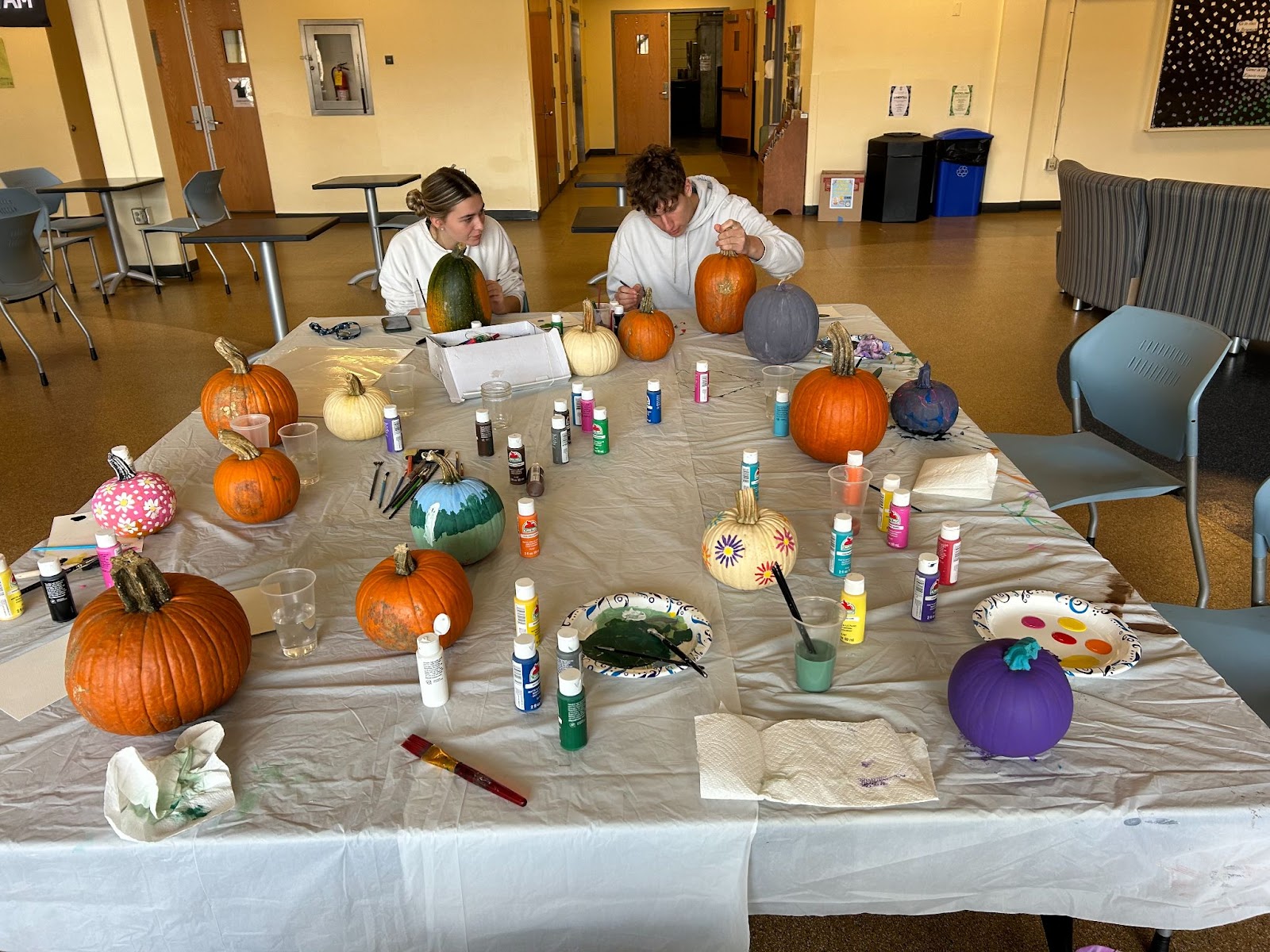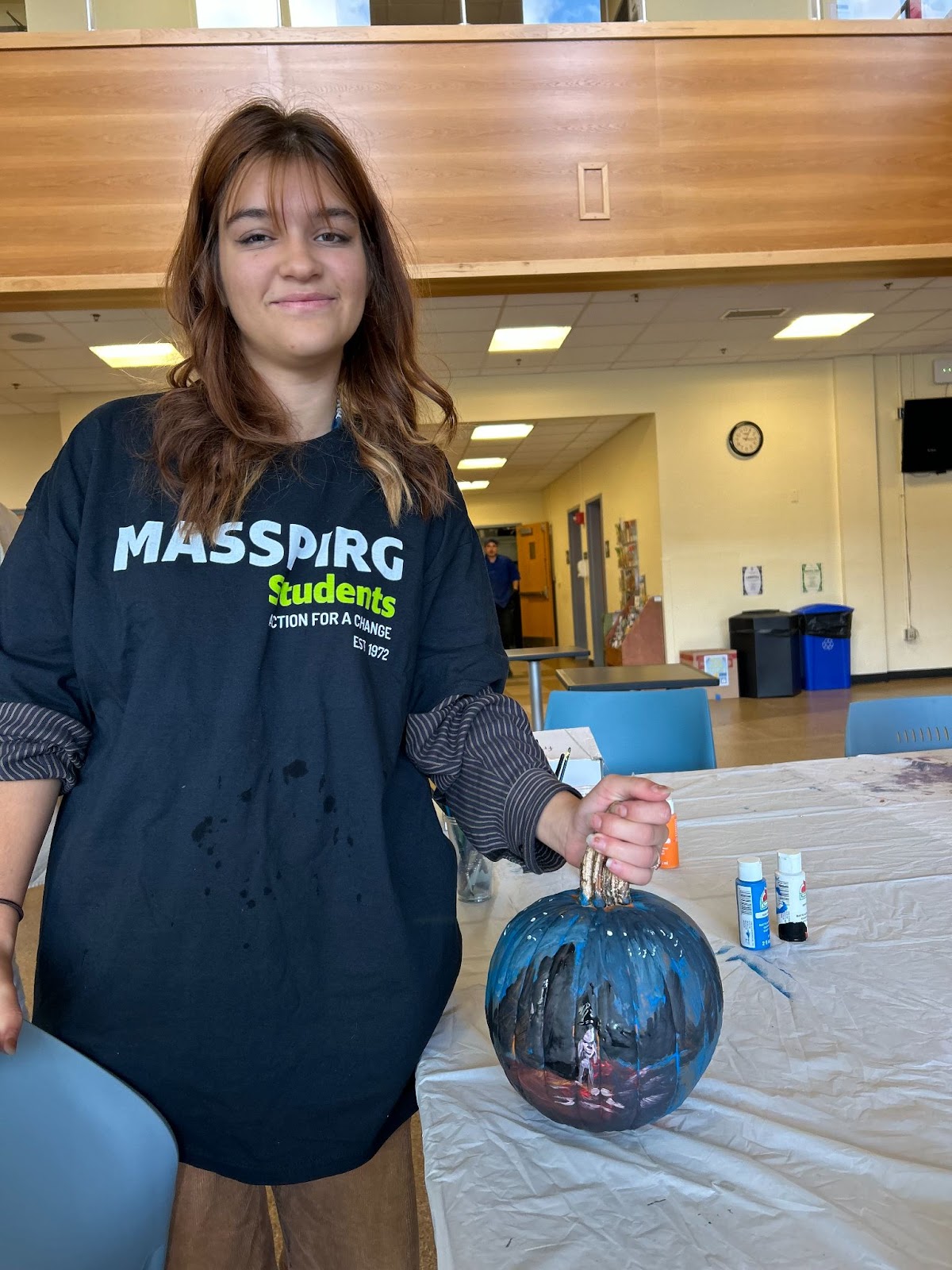If one attends MCLA, they are probably familiar with the name MASSPIRG. What may seem like a confusing fee on the tuition bill, MASSPIRG is an advocate for humanity and the climate. MASSPIRG, as stated on their website is, “an advocate for the public interest. [They] speak out for the public and stand up to special interests on problems that affect the public’s health, safety and wellbeing.”
MASSPIRG Students, specifically, works with staff at Massachusetts universities to encourage students to work towards change in the world, with goals to, “tackle climate change, protect public health, revitalize our democracy, feed the hungry and more,” according to the MASSPIRG Students website. MASSPIRG has been working towards these humanitarian goals for half a century, and there is no sign of slowing down.
MCLA, like other Massachusetts universities, has a MASSPIRG chapter. The Beacon spoke to Sabrina Schimscheimer, the Western Massachusetts Campus Organizer for MASSPIRG Students, who explained the steps they are taking to make MCLA, and the world at large, a better place, and what they have accomplished thus far.
Last year, in 2023, MASSPIRG Students encouraged MCLA students to vote in the November primary election, specifically encouraging one hundred students to make their mark and utilize their right to vote. “It was a blast with weekly tables outside the cafeteria,” Schimscheimer reminisces, and there was, “a creative pumpkin painting event with the Craft Club and a great Apple Cider and Donuts Get Out the Vote event on November 6th.”

This was done to, “encourage and give out stickers to those who mailed in their ballot or had a plan to go to the polls!” Students who aided with these particular events included Charity Curtis ‘23, Max Shramko, Alexis Moses, and Jackie Cohen, who volunteered in order to showcase the importance of voting, especially for the young people of America.
Besides the sheer importance of using one’s voice to help make decisions for the future of the country, MASSPIRG Students has a Hunger Free Campus Initiative, which is extremely crucial, as so many students and the families from which they hail are low-income and statistically impoverished.
Recently, thanks to MASSPIRG, there is now one million dollars in the state’s budget to help public college campuses in Massachusetts fund programs that help end food insecurity for college students. Specifically, “this Spring, the Hunger Free Campus campaign is working to increase funding from $1M to $4M in the state budget for grant programs to fund food security programs,” highlights Schimscheimer.

Center Marketplace. (Sabrina Schimscheimer)
College campus can apply for a grant in order to expand their existing food pantries, like the one that exists at MCLA, in addition to other steps, like an increased awareness of and access to SNAP/EBT benefits. SNAP or EBT benefits, formerly known as food stamps, allow individuals and families identified as low income to receive an allotted amount of money from the government monthly to spend on food and drink items.
As of now, MCLA students are unable to use SNAP/EBT benefits at the P.O.D convenience store or the Centennial Room dining hall. However, this MASSPIRG initiative helps grant access to SNAP/EBT staff who can aid students in filling out applications, and can also address the aforementioned issue of lack of SNAP/EBT available usage on campus.
“This would benefit the MCLA students because it would allow them to purchase food on campus using SNAP/EBT,” Schimscheimer states, “but [will] also create jobs for staff and students who want to be involved with ending food insecurity in their community.”
The MASSPIRG initiative to end food insecurity on Massachusetts college campuses is far from the last systemic change this organization hopes to accomplish, as MASSPIRG has environmental campaigns such as the 100% Renewable Energy and the Protect Our Oceans campaigns.
Campaigns such as these provide students an opportunity to speak with their legislators, specifically, “about why protecting and preserving their environment matters to them,” brings up Schimscheimer.

These initiatives also include hands-on methods of helping the planet, such as, “ clean[ing] up the Connecticut River outside of Northampton, a conference to generate media attention around protecting Cashes Ledge, an underwater mountain range off the coast of MA (that [they] are asking president Biden to protect by the end of this year) and small events throughout the semester that MCLA students can get involved in to show their support for tackling climate change,” Schimscheimer emphasizes.
The immense care towards the environment in the case of MASSPIRG students does not end there, for in 2024 the Beyond Plastics campaign hopes to reduce the use of single use plastic items, specifically through the expansion of Massachusetts’ Bottle Bill.” The Bottle Bill is the state’s most effective recycling program, passed in 1982,” Schimscheimer continues, “the Bottle Bill is currently implemented in 10 out of the 50 states with California and Michigan leading the charge to decrease their pollution from single-use plastics.”
“The Better Bottle Bill (and improved version of Massachusetts current Bottle Bill) would not only cover bottled water and other plastic containers not previously covered under the bill,” she further explains, “but increase the 5 cent bottle return to 10 cents and create more Bottle Redemption Centers for people to recycle in more places.”
Statistically, college campuses have lower recycling rates due to infrastructure, something that does effect MCLA, even though the college is, “eco-friendly when working with single-use plastics, especially in [the] academic buildings and the Marketplace, but we can always do more when it comes to moving our infrastructure and institutions towards environmentally friendly living.”
One of the steps that can be taken by the students is to petition for a Bottle Redemption Center, which could lead to 71% of plastic bottles being recycled, as opposed to the current 9% recycled through the campus’ current recycling system.
A MASSPIRG initiative that can aid with the actual logistics surrounding college classes is the Affordable Textbooks initiative, which aims to decrease the high costs of college textbooks and course materials through the expansion of the school’s OER, or Open Educational Resources.
“OER are open-licensed resources that are
published by the author under an open license which allows for free access,” explains Schimscheimer , and, “faculty members can implement these open resources into their course to help students save on course materials.” These course materials are adaptable, covering a broad range of topics and subjects such as English, Nursing, Engineering and Biology.
The expansion of OER access at MCLA would be extremely helpful for a numerous portion of students, as according to the College Board, the average undergraduate should budget at least $1,200 each year for supplies and textbooks. This amount equates to 10% of MCLA’s in-state tuition, and would be even more of a financial burden for those who pay out-of-state tuition.
Thankfully, “MASSPIRG Students worked with [State Representative] Mindy Domb to create an Affordable College Textbooks Bill through the Department of Higher Education to tackle the growing costs of textbooks,” Schimscheimer stated, “which disproportionately impacts low income students, undermining their academic success.”
If students are interested in helping create a better world through MASSPIRG students, no matter if they can only allot ten hours a semester, or even ten hours a week. MCLA students can contact MCLA campus organizer Sophia Loizos at [email protected], visiting a MASSPIRG Students event this spring, or filling out a volunteer form at https://masspirgstudents.org/volunteer-on-campus/.